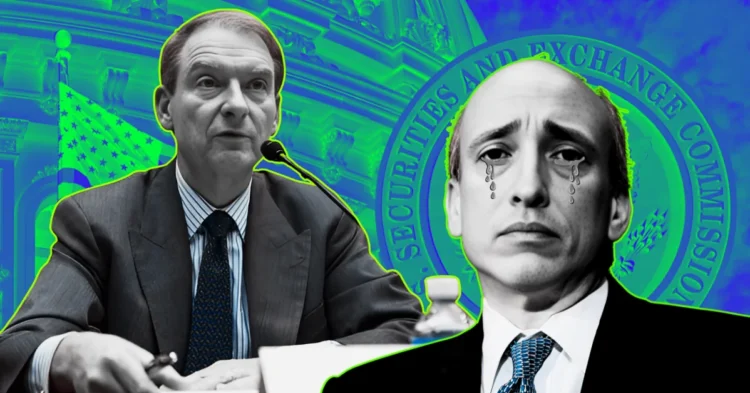The recent selection of Paul Atkins as the new leader of the Securities and Exchange Commission (SEC) marks a pivotal moment for the organization. President-elect Donald Trump has appointed Atkins, a former SEC commissioner, to succeed the outgoing SEC Chair, Gary Gensler. This transition is stirring anticipation and optimism among investors and the broader financial community.
Restoring Trust in the SEC
Under Gensler’s leadership, the SEC faced criticism and a significant erosion of trust. Both retail and institutional investors expressed frustration, attributing some of the agency’s decisions to potential influences from entities perceived as anti-crypto, including prominent figures such as Elizabeth Warren and certain banking interests. With Atkins at the helm, many are hopeful for a restoration of trust and a more balanced regulatory approach.
The Ripple vs. SEC Case: A Turning Point?
The Ripple vs. SEC case, initiated in 2020, has been a focal point in the debate over cryptocurrency regulation. With Paul Atkins now leading the SEC, there is cautious optimism within the crypto community about the possibility of the case being revisited or settled. This case is currently in the appeals process, leaving its ultimate resolution uncertain. The decision to drop or continue the appeal could significantly influence the SEC’s future stance on crypto-related issues.
Will The SEC Drop The Appeal?
Marc Fagel, a former SEC lawyer, has provided insights into the complexities of the Ripple case. The court previously determined that institutional sales by Ripple were in violation of securities law, while it did not find programmatic sales to be unlawful. These programmatic sales are currently under appeal. Should the new administration decide to withdraw the appeal, the Second Circuit Court would not get an opportunity to offer its perspective, which could have far-reaching implications.
Understanding the Court’s Decisions
Fagel further elaborated on the nuances of the court’s rulings. While Ripple was initially sued for allegedly selling unregistered securities, the court’s findings were mixed. Some sales were deemed to involve securities, whereas others were not. Judge Torres, presiding over the case, partially agreed with the SEC. She ruled that Ripple had illegally raised over $700 million through an unregistered securities offering, but did not find all aspects of the SEC’s claims valid.
Fagel commented, “The court found institutional sales to violate the law, but not programmatic sales. The latter is on appeal. Though if the new administration drops the appeal, we won’t have a chance to have the Second Circuit weigh in, unfortunately.”
Potential Outcomes and the Future of Crypto Regulation
The outcome of the Ripple case and the SEC’s approach under Paul Atkins could herald a new chapter in cryptocurrency regulation. If the appeal is dropped, it may signal a shift towards a more lenient and innovative regulatory environment, potentially benefiting the burgeoning crypto industry. However, the path forward remains contingent on the evolving legal proceedings and the strategic decisions made by the SEC’s new leadership.











